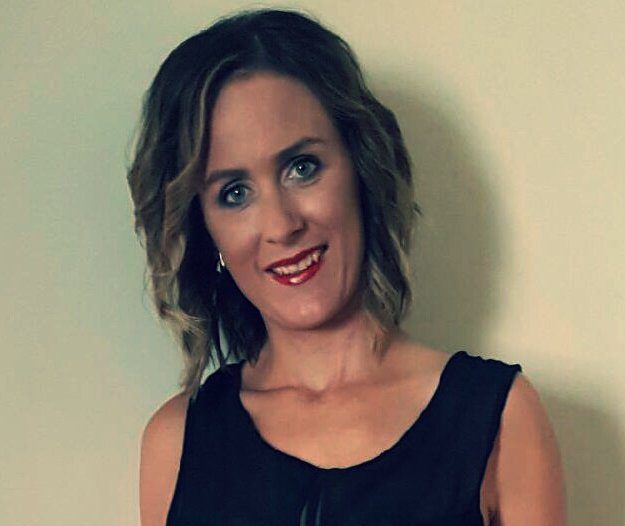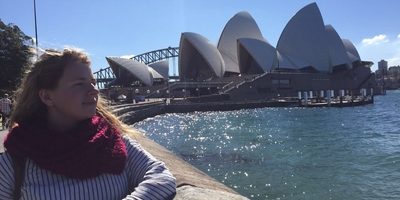
Courtney Ryder: Taking a leap into the research world
‘It is important to me to be a role model, an example of a strong resilient Aboriginal woman who can achieve anything she sets her mind to.’
A strong passion for improving Aboriginal and Torres Strait Islander health outcomes, stemming from experiencing her family’s own health issues, is the driving force behind Courtney Ryder’s health and medical research career.
Courtney, a Nunga woman from southern South Australia, was once plagued with self-doubt. Her ability to overcome this challenge and strive towards a better future is what makes her admired and well-respected.
Initially, Courtney doubted she would ever attend university—let alone to currently completing a PhD.
‘To be honest, early on I hadn’t always considered going to university,’ she said. ‘I had a few educational challenges through primary school and high school so I figured this was something beyond my capabilities,’ she said.
It was in Year 10 while attending the Indigenous Australian Engineering Summer School at the University of Sydney that Courtney ultimately realised ‘I can do this’ and proceeded to strive for her goal of attending university.
Initially interested in injury rehabilitation, Courtney wanted to design functional and comfortable prosthetics for her family members. She discovered the field of biomedical engineering to help her achieve this goal, completing a double degree in Electronic Engineering and Science (Biomedical) at Flinders University.
After her degree, Courtney became an Indigenous lecturer for the School of Medicine at Flinders University. Then after seven years of teaching she decided to focus more on research. This led her to begin a PhD focusing on burn victims in Aboriginal and Torres Strait Islander children.
‘Just knowing that Aboriginal and Torres Strait Islander health outcomes are unjust and avoidable - this is what really motivated me to contribute in a positive way and be a part of changing these statistics.’
‘For example Aboriginal and Torres Strait Islander children experience burns at least double the rate of other children,’ she explained.
With an NHMRC Postgraduate Scholarship to assist in her PhD research, Courtney, who is now based at the George Institute for Global Health, hopes to contribute knowledge to the rehabilitation of Aboriginal and Torres Strait Islander children experiencing burns and improve community-focused health outcomes.
Her grant will allow her to investigate how these injuries impact on the children’s quality of life along with associated psychological and economic family impacts. She hope this will lead to the development of more culturally appropriate and affordable care and recovery for Aboriginal and Torres Strait Islander paediatric burns patients.
Courtney wants to ensure others don’t have the same self-doubt as she once had.
‘This self-doubt is a common story for so many Aboriginal people and stems from the ongoing transgenerational trauma that we face. I have found that surrounding myself with the right people, who have my best interest at heart and support my aspirations, is the best way to overcome these challenges.’
Courtney encourages those interested to keep pursuing their goals even when they think they are not capable.
She believes that every Indigenous Australian has something unique to offer. ‘Don’t talk yourself out of it—take the leap into the unknown,’ she said.
‘Our communities need you. Remember you are good enough to be here and you deserve to be here.’
In the future Courtney wishes to see more institute involvement in Aboriginal health, where the communities will drive the research themselves. Courtney hopes more institutes will support Aboriginal and Torres Strait Islander higher learning to increase Indigenous researcher numbers.
In 2016, NHMRC awarded 74 scholarships to excellent postgraduate students, to help them achieve their PhDs and become future leaders in health and medical research.
First published by the National Health and Medical Research Council.


